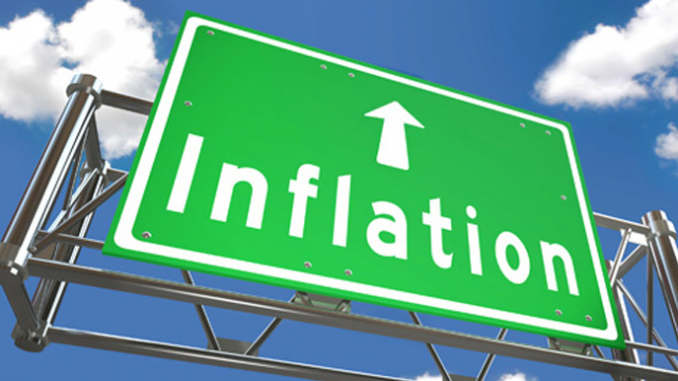
They noted that insecurity was one of the many reasons for high inflationary rates in the country.
The experts said inflation could further decline if the major causes were addressed.
NAN reports that the Consumer Price Index report, recently released by the NBS, showed that Nigeria’s inflation rate stood at 18.12 per cent in April, indicating the first decline in about 20 months.
This represents a 0.05 per cent points decline lower than 18.17 per cent recorded in March.
The Director, Centre for Economic Policy Analysis and Research, Prof. Ndubisi Nwokoma, urged government to address the security challenges affecting food production in the country.
“Inflation can further decline if we address the causative factors, primarily the supply constraints in production as well as money supply issues.
“The shortfalls in production caused by the current insecurity challenges have inflationary implications.
“This cuts across agricultural and industrial production, particularly food production. The ravaging herdsmen activities on farming fuels food Inflation.
“Government borrowing from the Central Bank which could have been serviced by printing of money and thus increasing the level of money supply can also be inflationary.
“Addressing these could help to moderate the level of inflation,” Nwokoma said.
Prof. Akpan Ekpo, Professor of Economics and Public Policy, University of Uyo, said that low inflation rate was good and a healthy development for the economy especially the poor, though, very marginal.
“To sustain the decline, the security situation needs to improve so as to encourage increased production of agricultural products.
“The talk of increases in electricity tariff and petroleum motor spirit should stop; the CBN should continue with its unconventional monetary policy and government should continue to aggressively implement its structural/investment policies,” Ekpo said.
Also speaking, Sheriffdeen Tella, a Professor of Economics at the Olabisi Onabanjo University Ago-Iwoye, Ogun, attributed the marginal drop to fall in consumers spending.
“The marginal fall in inflation is due largely to fall in consumers spending not as a result of increase in output. This is not good for the economy.
“The best way is for prices to fall due to growth in output. This is likely going to happen if the rain continues and there is less disruption of farms by herdsmen and other nefarious activities,” Tella said.






